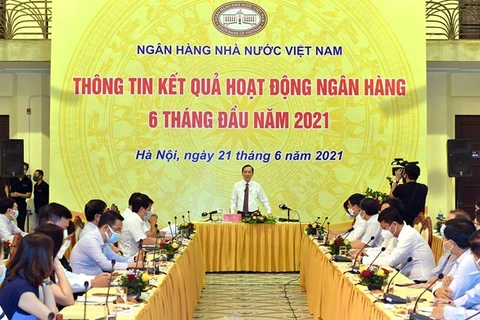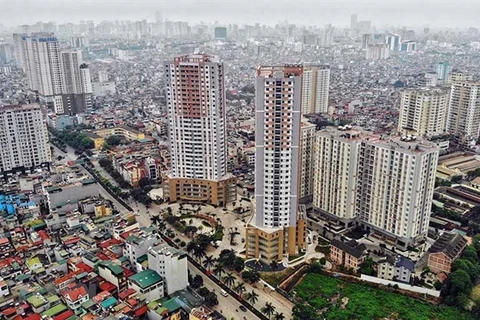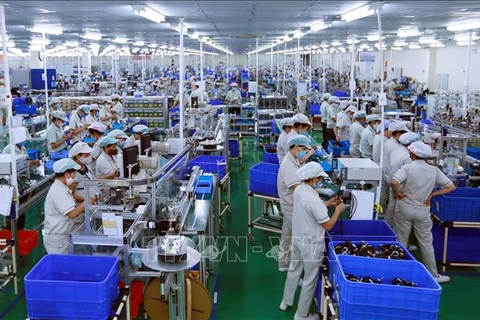Land prices cool down, property market well adapts
During a online ceremony to announce reports on the real estate market in the second quarter of 2021 and the outlook for the market trend in the last six months of the year on July 6, Nguyen Quoc Anh, Deputy General Director of Batdongsan.com.vn, said the economic growth rate in general and the demand for Vietnam's real estate market in particular in the second quarter were still very positive.
The number of newly established real estate businesses in the second quarter of 2021 increased by 45 percent compared to the first half of 2020. The registered capital also increased by 24 percent.
In terms of economic growth, Vietnam's average GDP reached 6.61 percent andreal estate business grew by 4 percent over the same period last year. These figures show that despite the epidemic, Vietnam is still controlling stable economic development.
For more detailed information about the real estate market in the second quarter of 2021, Anh said there were three main trends. The first is that the prices of land plots show signs of "cooling down." It is reflected in a sharp decrease in the search for planning information.
Similarly, the level of interest in land plots and project land plots within a radius of about 50-100km from Hanoi also dropped sharply. In which, Thai Nguyen saw a decrease of 6 percent, Ba Vi witnessed a drop of 2 percent, Bac Giang down 35 percent; Bac Ninh down 38 percent; and Hanoi’s Quoc Oai district down 17 percent.
Additionally, the interest and volume of posted news regarding the property market have witnessed a temporary decrease due to COVID-19, however it still higher than the same period of 2020. The deciding factors include market supply and demand with a 54 percent increase in the interest, 66 new projects, the volume of news regarding the property market up 8 percent and online sales for new products.
“Despite a wide range of difficulties from the COVID-19 pandemic, the real estate market in Vietnam has well adapted to the situation,” Anh emphasised.
Furthermore, new real estate projects in the second quarter increased by 30 projects compared to the first quarter of 2021.
Bright prospects for the market in year-end months
The Deputy General Director said the market will be largely affected by the results of the mass vaccination program.
Anh said this is the common trend of many countries, whereas the growth of real estate market in particular and the economy in general will be affected by the vaccination program, he noted.
“For example, in countries with a vaccination rate of 50-55 percent such as the US, Sweden, and Norway, the growth rate of real estate prices ranges from 9-10 percent and this figure in other countries that have completed the vaccination for less than 50 percent of their populations is much lower,” said Anh.
In addition, the Vietnamese Government is making great efforts to carry out the mass vaccination programme, the number of vaccinated people is likely to increase rapidly in the third quarter of 2021 when 8 million doses of vaccine are expected to arrive in July. The government is aiming to have 50 percent of workers in big cities vaccinated in the third quarter and if this scenario happens in line with the schedule, the demand for real estate transactions is expected to grow rapidly in the coming months.
Positive market data in the second quarter showed that homebuyers' sentiments have become more stable and gradually adapting to the general situation. Most homebuyers have determined that they will have to adapt to the long-term pandemic situation. Real estate businesses are also more active in finding new directions, applying technology into sale and transitioning from offline activities to online approach to customers./.


























